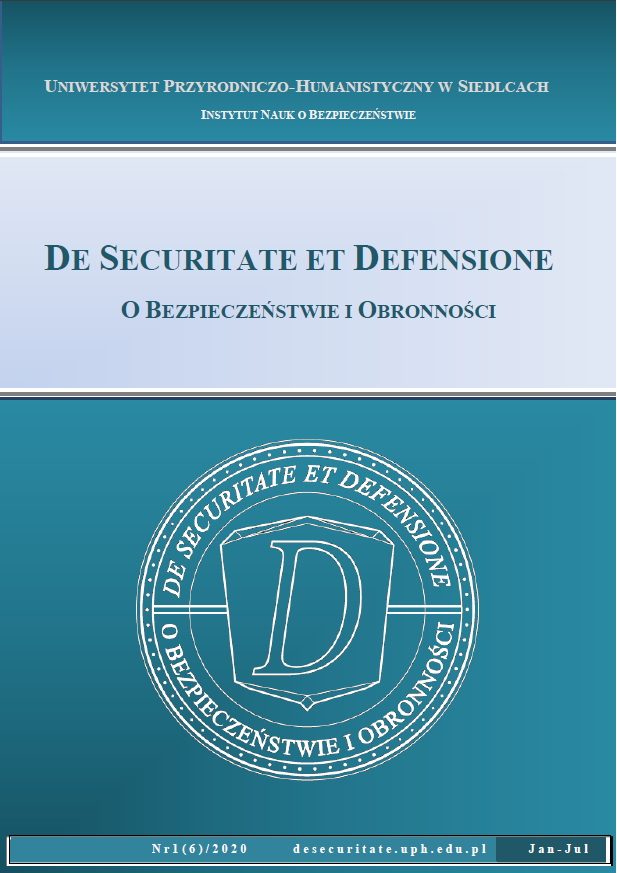ROLA TAJNYCH SŁUŻB W ROZPOZNANIU ZAGROŻENIA BEZPIECZEŃSTWA POLSKI. O EFEKTACH DZIAŁALNOŚCI WYWIADOWCZEJ BERLIŃSKIEJ PLACÓWKI „IN 3”
THE ROLE OF THE SECRET SERVICES IN RECOGNIZING THREATS TO POLAND’S SECURITY. ABOUT THE EFFECTS OF INTELLIGENCE ACTIVITIES OF THE BERLIN FACILITY "IN 3"
Author(s): Henryk ĆWIĘKSubject(s): History, Social Sciences, Security and defense
Published by: Uniwersytet Przyrodniczo-Humanistyczny w Siedlcach
Keywords: Germany;Intelligence; Polish security;Russia;Russia military cooperation;Reichswehr;Security threats;
Summary/Abstract: In 1918 Poland regained its independence. However, the security of the Second Polish Republic was based on fragile foundations. This resulted from a high threat from the eastern and western neighbours. Germany and Russia did not accept the provisions of the Versailles Treaty, they sought to revise it and war with Poland. Military cooperation of both dangerous neighbours was directed against Poland. Intelligence reconnaissance regarding the development of military potential and the intentions of both opponents was of exceptional importance. Captain, and later major Jerzy Sosnowski in the years 1926-1934 managed the Berlin intelligence unit codenamed „In 3”. He transferred to the headquarters of the Second Department of the SG a lot of valuable information regarding the development of the German armed forces, cooperation of the Reichswehr with the Red Army and preparations for war. The management of Polish intelligence received similar news from other sources. Many of them were received in disbelief and were not used properly.
Journal: De Securitate et Defensione. O Bezpieczeństwie i Obronności
- Issue Year: 6/2020
- Issue No: 1
- Page Range: 24-34
- Page Count: 11
- Language: Polish

